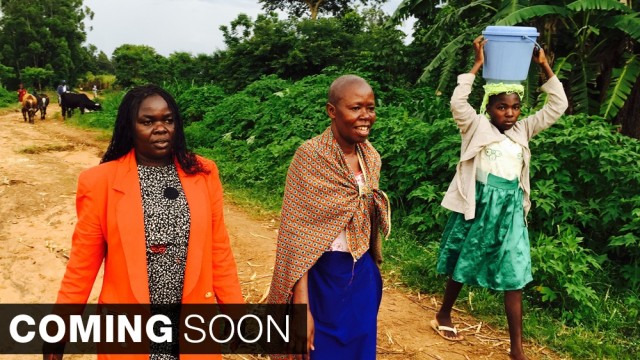
Across the world, almost 1.2bn people live in areas where water is physically scarce and this has an enormous impact on the quality of life.
Without clean water, communities suffer from recurrent diarrhoea and other debilitating or fatal diseases which, together with the time spent going to collect it, means a significant amount of time for education and employment is lost.
Collectively, women in 25 countries in sub-Saharan Africa spend at least 16 million hours each day collecting drinking water.
So, how could things be different?
In this film we head to the western Kenyan town of Kakamega and to the nearby village of Sisokhe to meet social worker Rose Atieno and Catherine Ondele, a nurse, who are using rainwater harvesting technology to bring clean water to villages.
As Atieno says, the men in rural villages make the water policies, but it is the women who feel the “pinch”: collecting water is physically difficult, time-consuming, and can make them vulnerable to rape.
In 2011, Atieno was one of the women participating in the Global Women’s Water Initiative project which provides women with the skills to build, repair and maintain rainwater harvesting tanks.
Since then, the trained women masons have helped other women build new tanks and turn their water into a money-spinner by selling it to the water company.
We follow Atieno and Ondele to see how Kenya’s female water tank engineers are empowering women in rural communities and bringing measurable benefits to their families, communities – and their country.
‘Kenya’s Water Women’ can be seen on Al Jazeera English from September 26 at 2230GMT.
Source:: Al Jazeera
The post Kenya’s Water Women appeared first on African Media Agency.
Support InfoStride News' Credible Journalism: Only credible journalism can guarantee a fair, accountable and transparent society, including democracy and government. It involves a lot of efforts and money. We need your support. Click here to Donate
